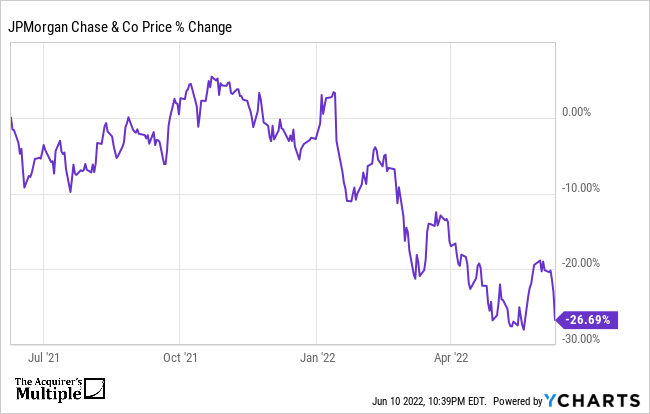
Low-risk investment options are best for those who can't stand the thought of losing money. It might not seem like much at first, but it can add to a large amount of money over time. Here are some common low-risk investment options. You can invest in CDs and Government bonds if you don't have the funds to make high-risk investments. The average low-risk investment return is about 5%.
Dividend stocks
Dividend stocks make a great, safe and reliable investment. These companies have consistently paid out dividends for decades, and they're safe investments for any investor. However, you should also look into emerging companies. These stocks can provide a great portfolio addition. Below are the top dividend stocks. These companies will help you achieve your financial goals quicker by investing in them.
Quality of dividend stock is the first thing you need to remember. The highest quality dividend stocks pay out their dividends almost like clockwork over 25 years and offer greater total returns. You can build a portfolio that will provide dependable income and capital appreciation if you are familiar with the company's financials and dividend policy. Dividend stock returns can be as high or higher than that of the wider market.

Government bonds
There are many reasons to invest in government bonds. The principal should be repaid when the bond matures. Also, interest rates are often higher than shortterm savings rates. Bonds can protect your portfolio from economic downturns. Future bond payments will be more affordable if inflation falls. A recession in an economy causes stock prices to fall, which encourages investors to invest in government bonds. An example of this type investment is panic selling at the mid-March selloff.
Inflation affects fixed payments on bonds. When a company defaults on its payments, the debtor is forced to pay back the debt amount and a bankruptcy judge will determine the amount that a bondholder receives. Long-term bonds face the greatest inflation risk. Some bonds are also callable. This allows the issuer to call the bond prior to it maturing. If this happens, the issuer has the option to redeem the bond or issue new bonds at lower interest rates. This will result in bondholders losing money as they must reinvest the principal at a lower interest rate.
Short-term bonds funds
You might want to invest in a short-term bond fund if you want to maximize your interest earnings. However, it is important to remember that your account balance may fluctuate over time, which is dependent on the performance of the underlying bonds. These are some of the factors you need to take into consideration before investing in a Short Term Bond Fund. Continue reading to learn more about this fund.
SWSBX: As of Oct. 2, 2020, this fund managed to accumulate $1.8 billion in assets. Its expense ratio was 0.6%. Its yield was 0.3%. The fund had 67% of its assets invested in government and lower-yielding securities as of June 30. Moreover, it does not charge a sales load at redemption. This fund does not require a minimum investment.

CDs
CDs can provide a steady return on investment. While interest rates can fluctuate in some cases, CDs are usually paid at a fixed rate. Unlike other investments, CDs do not require large amounts of initial deposit. However, higher-yielding accounts may require large deposits. Therefore, if you're a new investor, you should carefully consider the terms of each type of CD before making a decision.
Safest option: Bank-issued certificates of deposit are best. FDIC-insured CDs issued by banks are up to $250,000. However, investors need to consider the risk of interest rates fluctuating and the possibility that the issuer will call a CD early. CDs are subject to taxation and can lose their principal values if they're not sold soon. However, the benefits outweigh the risks of these investments.
FAQ
How are securities traded
The stock market lets investors purchase shares of companies for cash. Companies issue shares to raise capital by selling them to investors. Investors then sell these shares back to the company when they decide to profit from owning the company's assets.
Supply and Demand determine the price at which stocks trade in open market. If there are fewer buyers than vendors, the price will rise. However, if sellers are more numerous than buyers, the prices will drop.
You can trade stocks in one of two ways.
-
Directly from your company
-
Through a broker
What is a Mutual Fund?
Mutual funds are pools of money invested in securities. They provide diversification so that all types of investments are represented in the pool. This reduces the risk.
Professional managers are responsible for managing mutual funds. They also make sure that the fund's investments are made correctly. Some funds offer investors the ability to manage their own portfolios.
Mutual funds are preferable to individual stocks for their simplicity and lower risk.
Can you trade on the stock-market?
The answer is yes. There are many differences in the world. Some have better skills and knowledge than others. So they should be rewarded for their efforts.
But other factors determine whether someone succeeds or fails in trading stocks. For example, if you don't know how to read financial reports, you won't be able to make any decisions based on them.
These reports are not for you unless you know how to interpret them. Understanding the significance of each number is essential. You must also be able to correctly interpret the numbers.
If you do this, you'll be able to spot trends and patterns in the data. This will allow you to decide when to sell or buy shares.
This could lead to you becoming wealthy if you're fortunate enough.
What is the working of the stock market?
A share of stock is a purchase of ownership rights. The company has some rights that a shareholder can exercise. He/she can vote on major policies and resolutions. He/she may demand damages compensation from the company. The employee can also sue the company if the contract is not respected.
A company cannot issue shares that are greater than its total assets minus its liabilities. This is called capital sufficiency.
Companies with high capital adequacy rates are considered safe. Low ratios make it risky to invest in.
Why are marketable securities Important?
A company that invests in investments is primarily designed to make investors money. It does this by investing its assets into various financial instruments like stocks, bonds, or other securities. These securities are attractive because they have certain attributes that make them appealing to investors. They are considered safe because they are backed 100% by the issuer's faith and credit, they pay dividends or interest, offer growth potential, or they have tax advantages.
What security is considered "marketable" is the most important characteristic. This refers to the ease with which the security is traded on the stock market. It is not possible to buy or sell securities that are not marketable. You must obtain them through a broker who charges you a commission.
Marketable securities include common stocks, preferred stocks, common stock, convertible debentures and unit trusts.
Investment companies invest in these securities because they believe they will generate higher profits than if they invested in more risky securities like equities (shares).
What is a Stock Exchange, and how does it work?
A stock exchange allows companies to sell shares of the company. This allows investors and others to buy shares in the company. The market sets the price for a share. It is often determined by how much people are willing pay for the company.
The stock exchange also helps companies raise money from investors. To help companies grow, investors invest money. They buy shares in the company. Companies use their money in order to finance their projects and grow their business.
Stock exchanges can offer many types of shares. Some shares are known as ordinary shares. These are the most commonly traded shares. Ordinary shares are bought and sold in the open market. Shares are traded at prices determined by supply and demand.
Preferred shares and debt security are two other types of shares. Priority is given to preferred shares over other shares when dividends have been paid. A company issue bonds called debt securities, which must be repaid.
What are some advantages of owning stocks?
Stocks have a higher volatility than bonds. The value of shares that are bankrupted will plummet dramatically.
However, share prices will rise if a company is growing.
Companies usually issue new shares to raise capital. This allows investors to purchase additional shares in the company.
Companies can borrow money through debt finance. This gives them cheap credit and allows them grow faster.
Good products are more popular than bad ones. Stock prices rise with increased demand.
As long as the company continues producing products that people love, the stock price should not fall.
What is security in a stock?
Security is an investment instrument, whose value is dependent upon another company. It can be issued by a corporation (e.g. shares), government (e.g. bonds), or another entity (e.g. preferred stocks). If the underlying asset loses its value, the issuer may promise to pay dividends to shareholders or repay creditors' debt obligations.
Statistics
- Ratchet down that 10% if you don't yet have a healthy emergency fund and 10% to 15% of your income funneled into a retirement savings account. (nerdwallet.com)
- US resident who opens a new IBKR Pro individual or joint account receives a 0.25% rate reduction on margin loans. (nerdwallet.com)
- For instance, an individual or entity that owns 100,000 shares of a company with one million outstanding shares would have a 10% ownership stake. (investopedia.com)
- "If all of your money's in one stock, you could potentially lose 50% of it overnight," Moore says. (nerdwallet.com)
External Links
How To
How to Trade on the Stock Market
Stock trading can be described as the buying and selling of stocks, bonds or commodities, currency, derivatives, or other assets. Trading is French for traiteur, which means that someone buys and then sells. Traders trade securities to make money. They do this by buying and selling them. It is one of the oldest forms of financial investment.
There are many options for investing in the stock market. There are three basic types: active, passive and hybrid. Passive investors only watch their investments grow. Actively traded investors seek out winning companies and make money from them. Hybrid investors take a mix of both these approaches.
Passive investing can be done by index funds that track large indices like S&P 500 and Dow Jones Industrial Average. This approach is very popular because it allows you to reap the benefits of diversification without having to deal directly with the risk involved. You can simply relax and let the investments work for yourself.
Active investing is the act of picking companies to invest in and then analyzing their performance. Active investors will analyze things like earnings growth rates, return on equity and debt ratios. They also consider cash flow, book, dividend payouts, management teams, share price history, as well as the potential for future growth. Then they decide whether to purchase shares in the company or not. If they feel that the company is undervalued, they will buy shares and hope that the price goes up. However, if they feel that the company is too valuable, they will wait for it to drop before they buy stock.
Hybrid investing is a combination of passive and active investing. One example is that you may want to select a fund which tracks many stocks, but you also want the option to choose from several companies. In this scenario, part of your portfolio would be put into a passively-managed fund, while the other part would go into a collection actively managed funds.